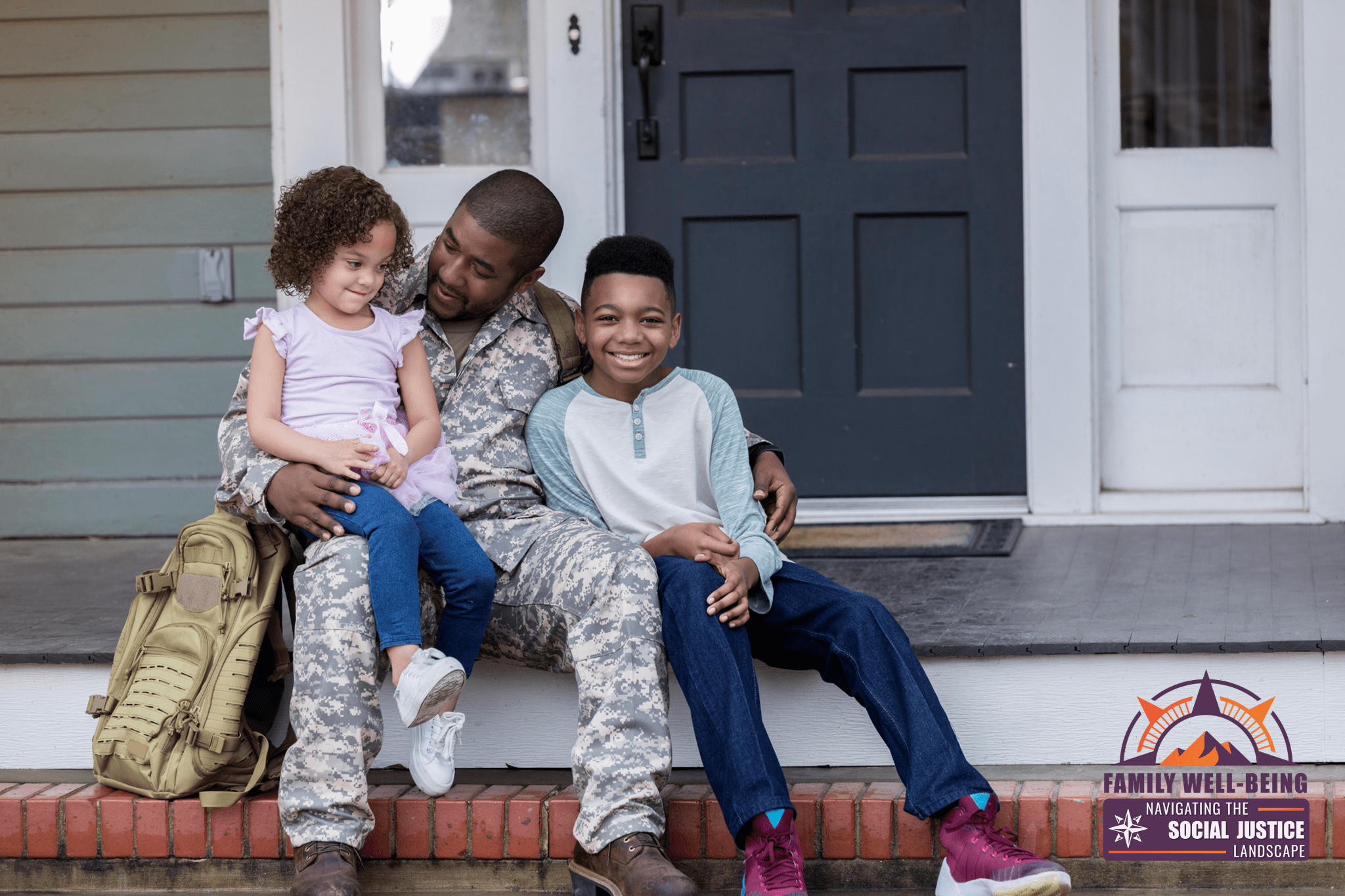By Sara Croymans
The OneOp 2022 Military Family Readiness Academy (Academy) Family Well-Being: Navigating the Social Justice Landscape focuses on individuals’ understanding of social justice and equity. Providers who work with military families will be helped to increase their understanding of privilege and oppression.
The 2022 Academy offers three free self-paced courses. The first course provides an introduction to using a social justice lens to strengthen family well-being. The second course guides family service providers to recognize and respond to inequities in their work. The final course specifically addresses social justice and military families. All three courses are packed with valuable information, reflective activities, and resources for service providers.

I sat in on the first panel discussion on social justice and social work held on June 15 because I wanted to learn more about the content of the three courses. The panel included three scholars — Shawn O’Neal, Jennifer Ho, and Allison DeMarco — who spoke on racism, equity, and diversity with Chris Plein moderating the conversation. The panelists discussed the link between racial, sexual, and gender oppression, structural ideology, influencing change within organizations, and relationship-based support and coaching.
As I reviewed my brief notes from the panel discussion, I was eager to start the three courses and learn more. A few critical items in my notes caught my attention:
- Language is important. Service providers, social workers, and other helping professionals are often in a position of power and the language we use has implications. However, if we work together with a common purpose and language we can make positive changes.
- The shift from a deficit ideology that focuses on the individual’s needs to a structural ideology that attributes disparities to inequity or lack of fairness or justice in systems. The second course helps us learn more about how systemic discrimination, marginalization, and inequity create barriers to access and opportunities for diverse families. I look forward to discovering new ways to respond to institutional discrimination as it appears in organizational policy and the management and practice of human services.
- “It is not a bad thing to not know the right thing” and “it is okay to make mistakes”. The panel presenters emphasized that how one moves forward after a mistake is important. They encouraged us to lean in, have open discussions and conversations, learn from our mistakes, and move forward in a positive direction. I look forward to learning more in the third course which will examine the concept of belonging and inclusion through a framework of self-care, healing, and resilience.
Overall, the conversation reminded me of this African proverb: “If you want to go fast, go alone, if you want to go far, go together”. I felt reassured that taking steps to expand my understanding of social justice is a process that is not always simple or easy, and that there is great value in sharing the experience with others.
I encourage service providers working with military families to:
- Enroll in the three courses
- Participate in the second panel discussion scheduled for June 29 which will specifically address social justice and military families
- Join the LinkedIn group to share your experiences and learn with other professionals
- Invite your colleagues to take this journey with you so you can learn together, reflect together, and take action together
Please note that each course and panel discussion offers a certificate of attendance and/or continuing education credits from various credentialing agencies.
This blog post was written by Sara Croymans, MEd, AFC, University of Minnesota Extension Educator, member of the OneOp Family Transitions team, military spouse, and mother. Family Transitions provides education, resources, and networking opportunities for professionals working with military families to build resilience and navigate life cycle transitions. Engage with the OneOp Family Transitions team on our website, Facebook, and Twitter.














